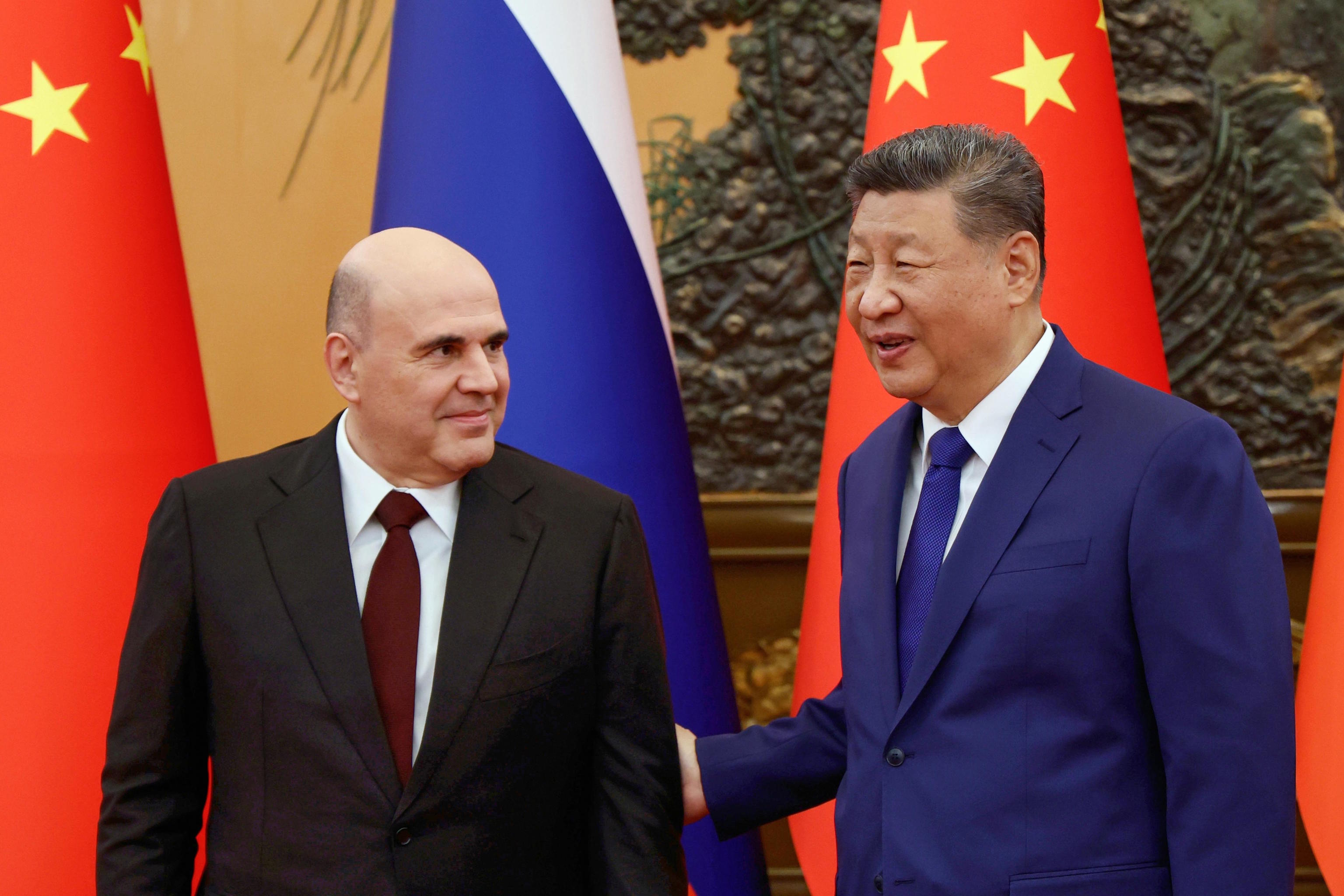Five days after sealing a trade truce with Donald Trump after a 90-minute meeting held in South Korea, Xi Jinping received Russian Prime Minister Mikhail Mishustin in Beijing on Tuesday. "Maintaining, consolidating, and strengthening bilateral relations is a strategic decision for both parties," stated the Chinese president during a meeting held in the Great Hall of the People, the Chinese legislative body located in Tiananmen Square.
Xi told Mishustin that the two countries have faced "a turbulent international environment" with great composure and that they must maintain their "close coordination" and "expand cooperation."
On Monday, in the Chinese city of Hangzhou, Mishustin was also received by Chinese Prime Minister Li Qiang, who emphasized Beijing's intentions to continue strengthening cooperation with Moscow and "defend shared security interests." State agencies of both countries indicated that both officials signed a series of agreements on trade, energy, agriculture, and the space program, without providing more specific details.
"Despite the new external risks and challenges in this process, China and Russia always support each other, establish strategic contacts and interactions, and strive to jointly overcome difficulties," declared Li. "China is willing to strengthen the alignment of development strategies with Russia and expand cooperation in various fields," he concluded.
Just before the Russian invasion of Ukraine in February 2022, Xi Jinping and Putin signed the "limitless" partnership that the Russian regime has clung to in order to mitigate the impact of Western sanctions, starting with increased energy cooperation and a rise in bilateral trade settled in yuan.
Over the past three years, both the US and the EU have accused China of fueling Putin's war machine by exporting dual-use products (civil-military), such as integrated circuits and semiconductors, even though they are not directly providing lethal weapons to the Russian army.
From Ukraine, President Volodymyr Zelensky has directly accused China this year of allegedly supplying weapons and ammunition to Russia. Last month, Oleh Aleksandrov, an official from Ukraine's Foreign Intelligence Agency, went further by stating that Beijing was providing intelligence to Russia to enable Moscow to launch better missile attacks within Ukraine.
"There is evidence of a high level of cooperation between Russia and China in conducting satellite reconnaissance of Ukrainian territory to identify and further explore strategic targets for attack," Aleksandrov stated on the same day that Putin's army intensified its missile and drone attacks on several Ukrainian cities.
A week after several reports by US media outlets, it was revealed that Russia had agreed to help China equip and train an airborne battalion for a potential invasion of Taiwan. This news came from leaked 2023 documents by a group of hackers known as Black Moon, which were reportedly verified by the British think tank Royal United Services Institute (RUSI).
"Russia is equipping and training Chinese special forces groups to penetrate the territory of other countries undetected, offering offensive options against Taiwan, the Philippines, and other island states in the region," the experts pointed out. "If fully implemented, the agreement would enhance China's aerial maneuverability, an area where the Moscow army still holds an advantage over the People's Liberation Army."
American Donald Trump, before the meeting he held last Thursday in the South Korean city of Busan with his Chinese counterpart, stated that he would ask Xi to use his influence with Putin to end the war in Ukraine. He also mentioned that he would push for the Asian superpower to stop supporting the Kremlin by purchasing sanctioned oil. However, neither the war in Ukraine nor Russian oil were discussed during the summit between the leaders of the world's largest economies.
In recent weeks, according to Reuters, major Chinese state-owned oil companies have reportedly suspended purchases of Russian oil transported by sea after the Trump administration imposed heavy sanctions on Russia's two largest oil companies, Rosneft and Lukoil, in an attempt to pressure President Putin to negotiate an end to his war against Ukraine.
